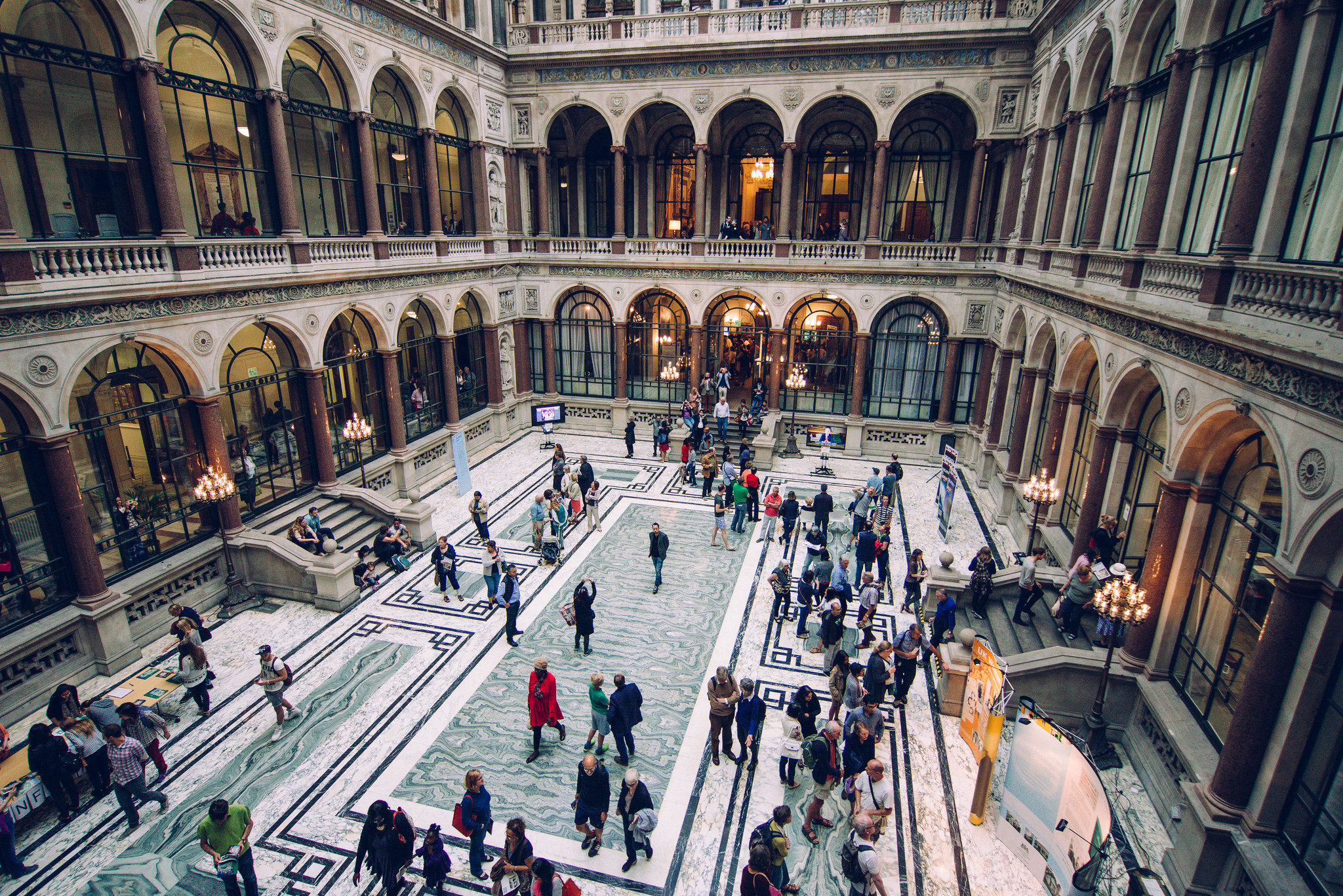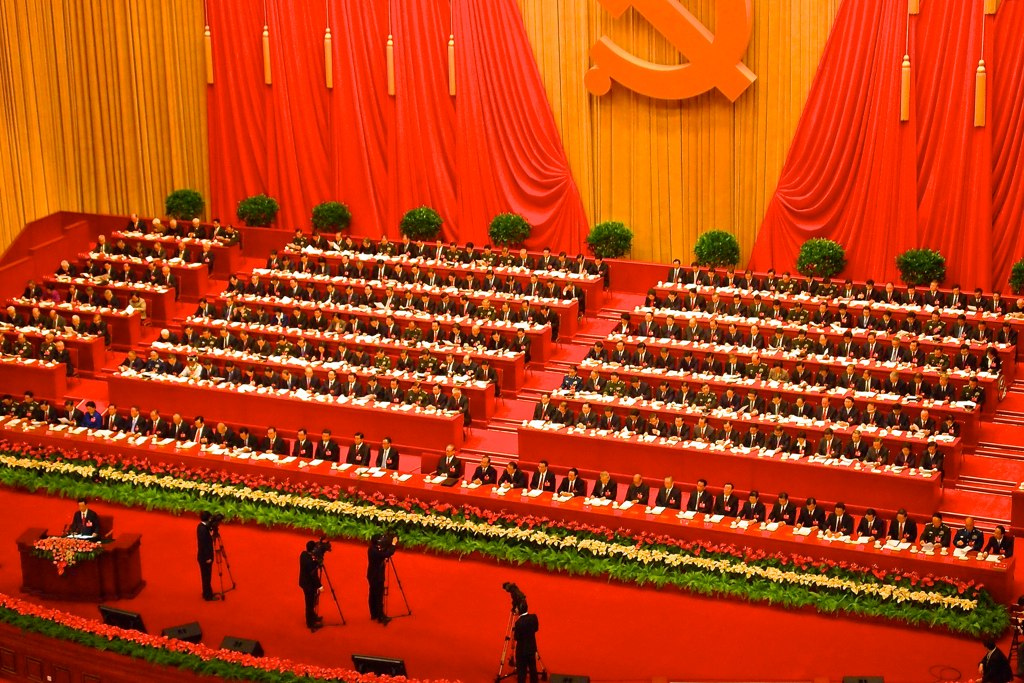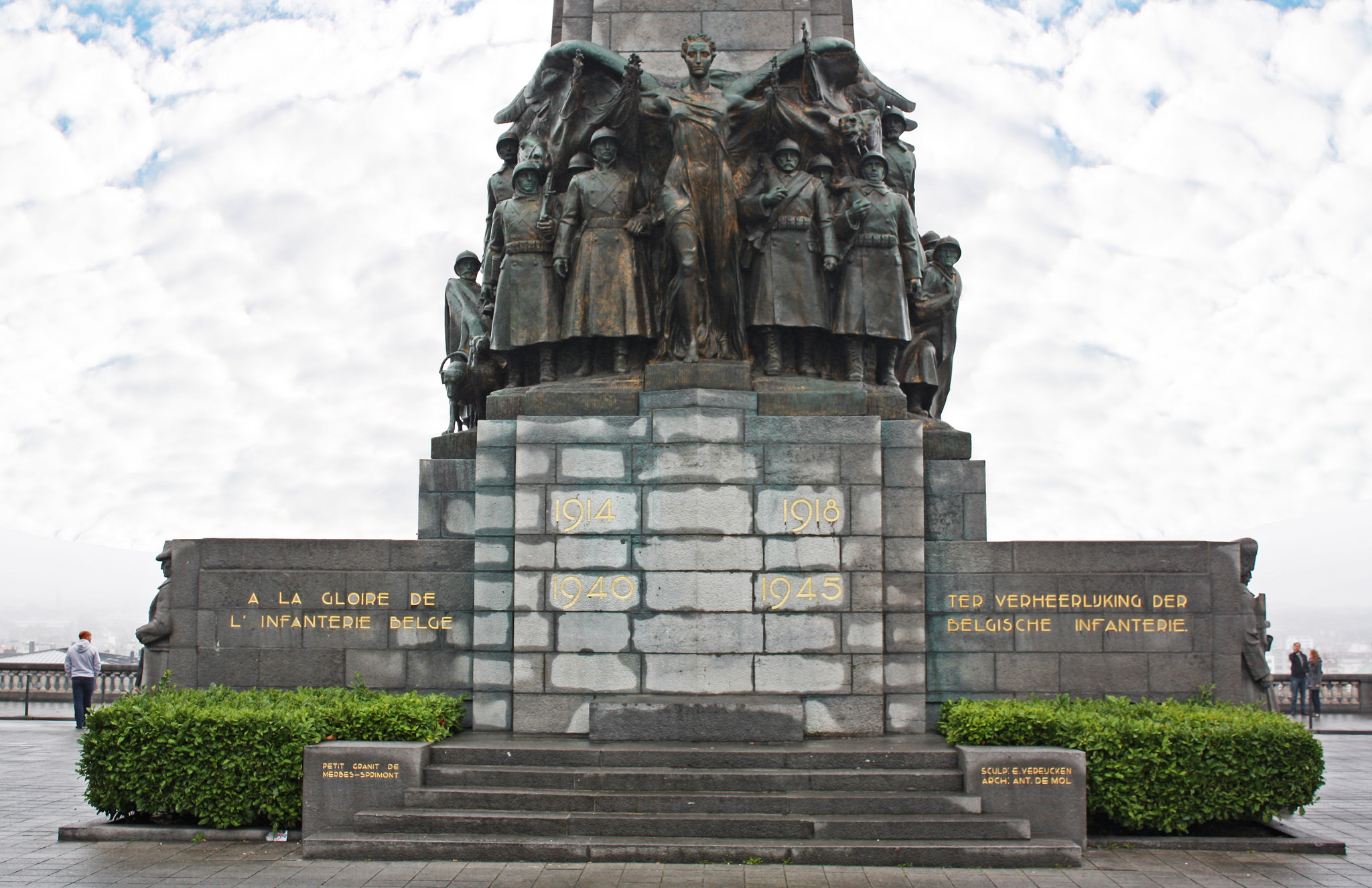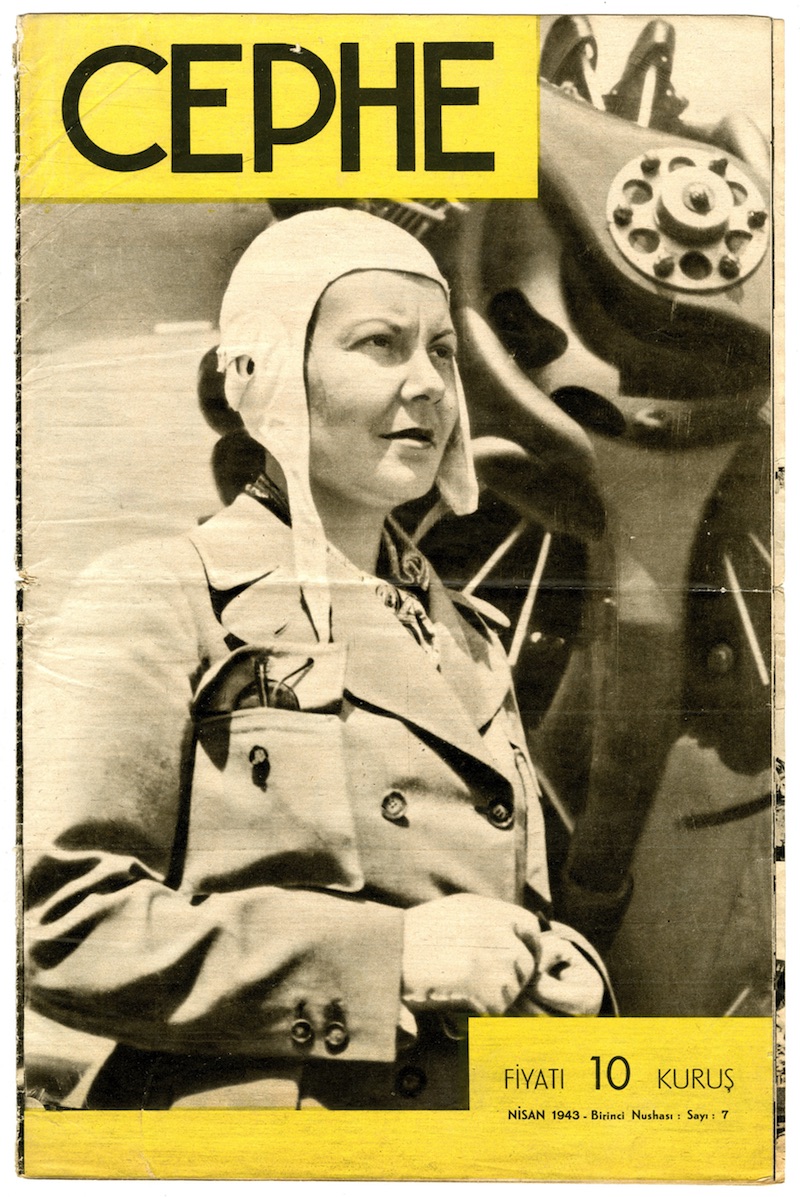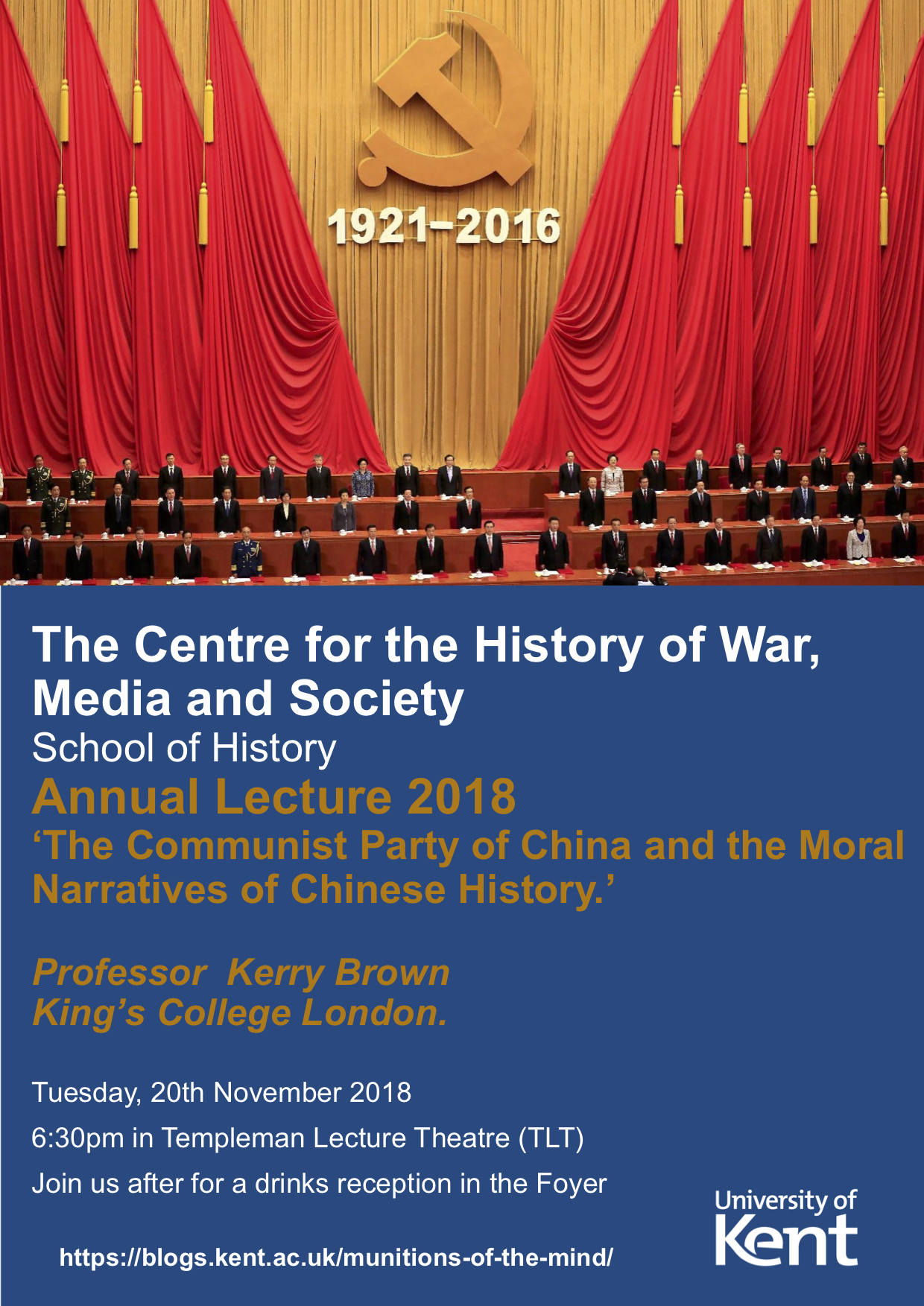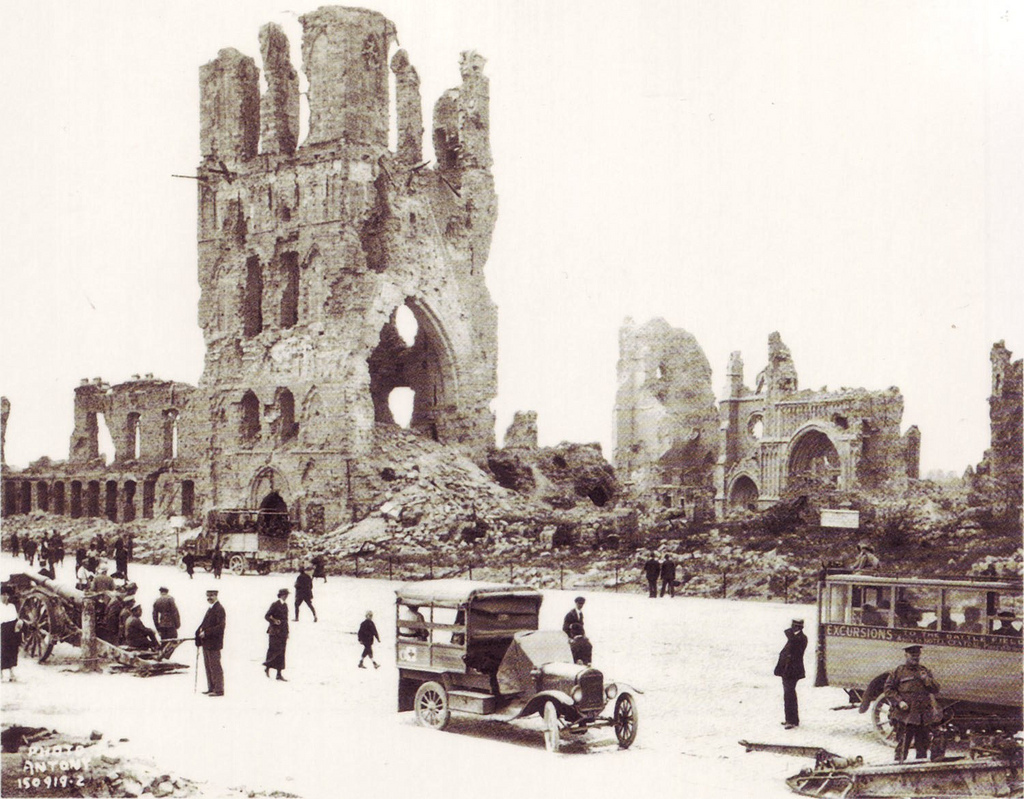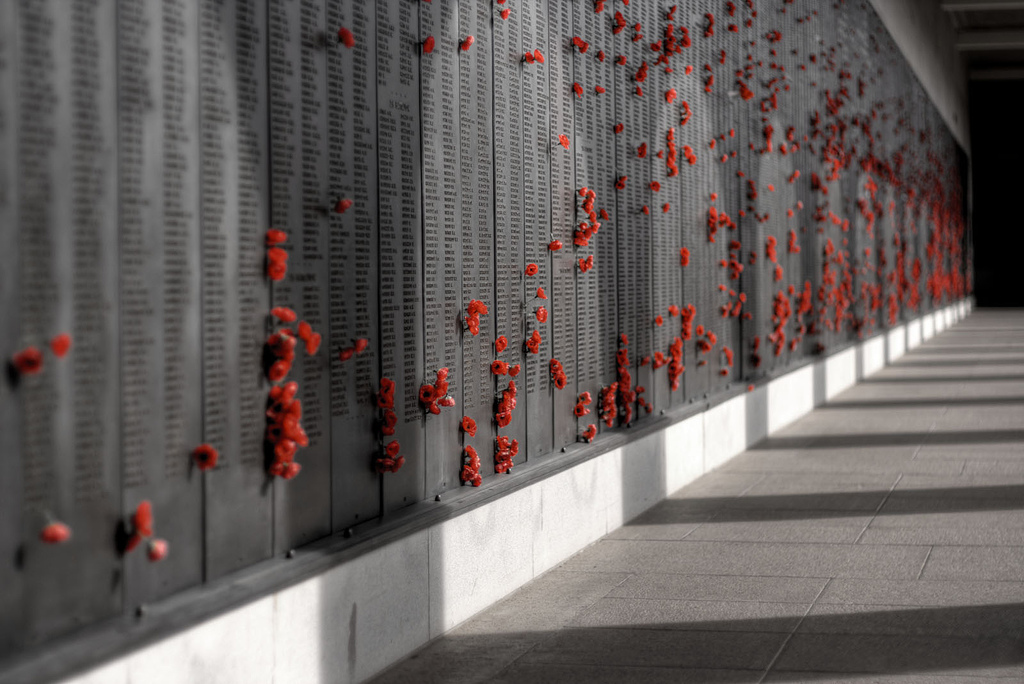Written by Mark Connelly and Stefan Goebel.
Visiting Ypres, or Ieper to use its modern name, is an amazing experience. First, there is the sheer wonder of wandering around a seemingly historic city which, on closer inspection, proves to be of very recent completion. Then, there is the impressive scale of the massive Cloth Hall, the great medieval trading market which attracted merchants from across Europe. But, that too proves to be a bit of curiosity when stared at, as the mix of very smooth, sharply cut stone merges with the pock-marked, scarred and worn pillars along the ground floor. Next to the Cloth Hall is a soaring medieval cathedral, but enter inside and it feels so new you almost expect it to squeak as it comes out of the shrink-wrap. Finally, there is the Menin Gate, a huge memorial to the British and Commonwealth missing of ‘the salient’. Tucked into the ramparts, the Menin Gate almost leaps out on the visitor walking along the street from the central square (the Grote Markt). Of course, it is the Menin Gate that provides the key to the rest of the mystery, for it commemorates the fact that this charming West Flanders city witnessed some of the most intense and prolonged fighting on the Western Front between 1914 and 1918. During that fighting, Ypres was reduced to rubble and ashes only to rise again in replica form. And that is an underlying theme of our new book, Ypres: the recycling, rebuilding, reconstruction of images, stories, and histories of Ypres which stands alongside the physical construction of memorials, monuments and cemeteries in a reconstructed landscape. It is about construction and reconstruction; the encoding and reinterpreting of a major historical event within its original space, and how the battlefield of Ypres could be brought home.

